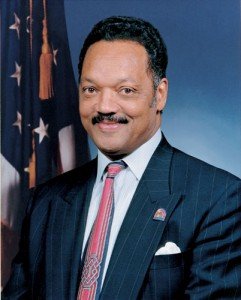Assault On Right to Vote Comes From Home-grown Reactionaries
Jesse Jackson | 3/9/2018, 7:18 a.m.
This past weekend, we once again gathered in Selma, Ala., to commemorate "Bloody Sunday," the March 7, 1965, march across the Edmund Pettus Bridge that was savagely put down by police.
That march - and the march from Selma to Montgomery that followed under federal protection - helped galvanize public support for the Voting Rights Act that President Lyndon Johnson signed into law that year.
Now the right to vote is under systematic assault once more. In Shelby County v. Holder, five activist right-wing Supreme Court judges in 2013 ignored precedent and the will of the overwhelming majority of Congress to gut vital enforcement mechanisms in the Voting Rights Act. Shelby rolled back some of what was won in Selma. Immediately, right-wing legislators in states across the country rolled out legislation setting up new barriers to voting.
Before Selma, segregationists used a poll tax, literacy tests and often violent intimidation to keep African-Americans from registering to vote. After Shelby, states used new tricks and traps: gerrymandered districts, photo ID requirements, purges of the voting rolls, reduced time for early voting, limiting the number of polling places, particularly in African-American neighborhoods, and more.
In 2010, those same activist right-wing judges had also overturned decades of precedent in Citizens United v. FEC, opening the gates for corporate money - often contributed in secret - to flood our politics. Much of that goes to negative ads designed to drive down the vote and drive up cynicism.
In the South before Selma - despite the 15th Amendment that prohibited states from infringing on the right to vote on account of "race, color or previous condition of servitude" -- the campaign to lock African-Americans out of the polling booth worked. It took the civil rights movement, marches and sit-ins, peaceful demonstrators suffering beatings, arrest and murders and many years to pass the Voting Rights Act and then to get it enforced.
The foes of voting rights never gave up. They never stopped trying to turn back the clock. Now, their unrelenting campaign against voting rights is bearing fruit. In response, we need a new movement to protect and extend the right to vote. Strategic litigation is needed to counter the right's legal maneuvers.
Legislators should replace the new restrictions on voting with legislation that makes voting easier, not harder: Automatic and same day voter registration, extended periods for early voting, longer hours for polling booths to stay open for working people, an end to political gerrymandering, an end to felony disenfranchisement, curbs on big money in politics and more.
We once more need reform to revive our democracy. That won't happen without a modern day people's movement as courageous and as relentless as that in Selma a little over half a century ago.
Much attention has been paid to the Russian interference in our 2016 presidential election. Surely it is bizarre that President Donald Trump's State Department has spent not one cent of the millions appropriated for countering Russian cyber subversion of our election. Steps to protect a true vote and to expose and limit foreign intervention in our elections are vital.
But we should be clear: The greatest attack on the right to vote comes not from the Russians but from home-grown reactionaries who want to make it harder for African-Americans, Latinos, the young and working people to vote, and easier for big money to influence our elections.
The democratic revival that accompanied the passage of the 15th Amendment after the Civil War was met with a fierce reaction that ended up imposing segregation - legalized apartheid - across the South. The democratic revival that followed passage of the Voting Rights Act and the civil rights movement has similarly been met with a fierce reaction that is undermining voting rights in states across the country.
Now the question is whether that reaction will spark a new movement to protect the right to vote.
Voter suppression matters. The purge of the voter rolls in Florida surely cost Al Gore the presidency in 2000. The new laws that helped suppress black votes in Wisconsin helped cost Hillary Clinton the presidency in 2016. The right to vote is fundamental to our democracy, but it is neither explicitly guaranteed in the Constitution nor guaranteed in practice.
It is once more under attack, and once more must be defended and extended.
You can write to the Rev. Jesse Jackson in care of this newspaper or by email at jjackson@rainbowpush.org. Follow him on Twitter @RevJJackson.
Share this story online at stylemagazine.com.




